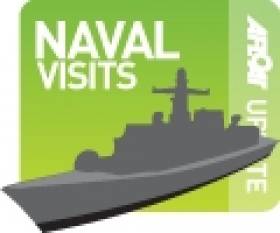Displaying items by tag: Sandown class minehunter
Minehunter that Served in Libya Anchors in Dublin Bay
#NAVAL ANCHORAGE – A Royal Navy mine-hunter HMS Bangor (MI09) which took part in Libyan operations last year, anchored overnight in Dublin Bay during the north-easterly gale force winds, writes Jehan Ashmore.
Unlike the majority of vessels which anchor in the south of the bay, she unusually took anchorage north of the main shipping lane for Dublin Port by positioning off Sutton South on Howth Peninsula.
HMS Bangor is a Sandown class mine-hunter and she is due to continue her northbound passage through the Irish Sea to spend Easter at her affiliated namesake town on the shores of Belfast Lough.
Her last call to Bangor was to celebrate Armed Forces Day 2010 and also in that year she called to Dublin, click HERE for that report.
On this occasion she will tell of her role supporting NATO operations off the coast of Libya. During Operation Unified Protector, the mine-hunter's task involved 120 days of non-stop action by scouring miles of sea bed off Libya as the battle between rebels and Colonel Gaddafi raged.
Built in 1999 by Vosper Thorneycroft, Southampton, the glass-reinforced plastic (GRP) ship and her 34 crew undertook the painstaking work. This paid off when the 55m vessel found a 2,400-pound (1000kg) mine and a torpedo lying on the seabed off the port of Tobruk in eastern Libya.
Both were safely destroyed using the ship's Sea Fox system – an underwater drone armed with explosive charges.
HMS Bangor is among seven of her class based at on the Clyde, Scotland. They each displace 600 tonnes and have a range of 2,500 nautical miles. For further details about the class, click HERE.





























































